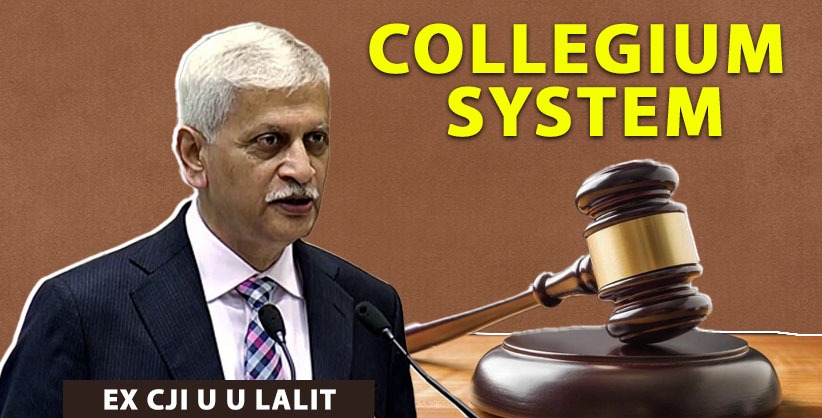NEW DELHI: Former Chief Justice India U U Lalit had said the Collegium system is indispensable for the independence of judiciary and the rule of law while asserting that the current mechanism for appointment for High Courts and the Supreme Court judges is here to stay.
"In fact, the Supreme Court found the National Judicial Appointment Commission Act (passed by the Narendra Modi in previous term) to be unconstitutional. If the govt attempts to bring in the NJAC again, that is their prerogative. But so long as that is not brought in, we will have to follow the established mechanism," he said.
Justice Lalit, who demitted office as the 49 th CJI on November 9 after a brief tenure of 74 days, was interacting with media persons at his residence here.
Maintaining that there are enough checks and balances in the Collegium system, he said it is perfect and does not require any any fine tuning.
Justice Lalit also felt the secretariat, established at Supreme Court as per the NJAC judgement, has to be made functional fully as it would bring in more accountability.
Notably, Law Minister Kiren Rijiju has recently termed the Collegium system as opaque. He also said judges spent half of their times in deciding who are to be appointed as judges, instead of delivering justice.
In his response, Justice Lalit said the Collegium system is as of now an established norm after the judicial approval by the Constitution benches. His (Minister's) comments are his personal opinion, he said.
"The Collegium system is foolproof. There are enough checks and balances. Collegium judges selecting a judge is often from other states and thus there is a check. Then there is Intelligence Bureau reports , then SC collegium looks at it," he said.
"The Chief Justice coming from outside is the best guarantee since he will only see talent in the High Court. That is why Chief Justices in HC are from outside the states," he added.
Justice Lalit also said he felt no disappointment for not being able to appoint a single judge in the Supreme Court.
The recommendation by the Collegium to elevate Bombay High Court's Chief Justice Dipankar Dutta in September is yet to be cleared by the Union government.
Justice Lalit as Collegium head also recommended four names for elevation to the Supreme Court but it did not materialise as two members of the Collegium namely Justices D Y Chandrachud and S Abdul Nazeer opposed the process of proposing the names through circulation.
Replying to criticism faced by him on setting up a bench on Saturday, a court holiday, to hear an appeal against discharge of former DU Professor G N Saibaba in Maoist link case, the former CJI said he had formed the bench after a number of judges, he spoke to personally, were not available.
"I had told no judges as to what the case was and what relief was being sought. What social media is trying to project that it was well thought it is not at all so," he said, adding, "What happens before a particular bench is not in my control."







